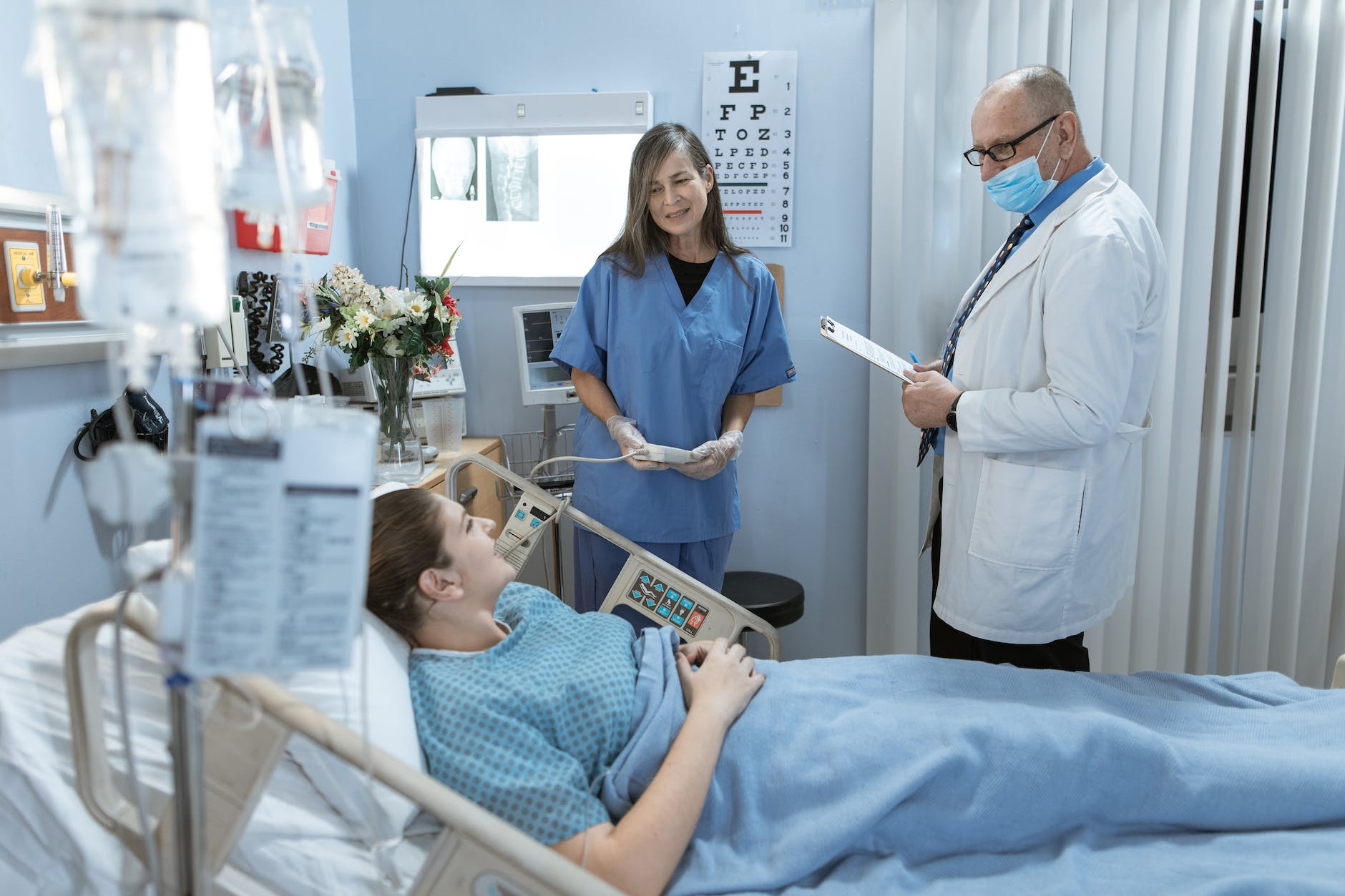Nursing is a noble profession that requires compassion, patience, and technical skills. It is also a rapidly growing field with increasing demand for qualified professionals. Becoming a nurse is not just a career choice, but a calling that requires dedication and hard work. In this guide, we will provide you with the essential information you need to start your journey as a successful nurse.
Understanding the Nursing Profession
Nursing is a healthcare profession that involves providing care to individuals, families, and communities. Nurses work closely with doctors and other healthcare professionals to diagnose and treat patients. They are responsible for assessing patients’ needs, developing and implementing care plans, administering medications, monitoring vital signs, and promoting overall health and wellness.
Nursing is a dynamic and ever-evolving field, and nurses must continually update their knowledge and skills to provide the best possible care to their patients. This requires ongoing education and professional development.
The Importance of Ongoing Education and Professional Development for Nurses
As a nurse, you play a critical role in providing high-quality care to patients. To ensure that you are equipped with the knowledge and skills needed to provide the best possible care, it is important to engage in ongoing education and professional development. Let’s explore the benefits of ongoing education and professional development for nurses, as well as tips for staying current in the field.
The Benefits of Ongoing Education and Professional Development for Nurses
Ongoing education and professional development offer several benefits to nurses, including:
- Improved patient outcomes: By staying up-to-date on the latest advancements in the field, nurses can provide better care to their patients and improve patient outcomes.
- Increased job satisfaction: When nurses have the opportunity to learn and grow in their careers, they are more likely to feel fulfilled and satisfied in their jobs.
- Better opportunities for advancement: Nurses who engage in ongoing education and professional development are more likely to be seen as leaders in their field and to have greater opportunities for advancement.
- Higher salaries: In many cases, nurses who invest in ongoing education and professional development earn higher salaries than those who do not.
- Better prepared for changes in the healthcare industry: As the healthcare industry evolves, it is important for nurses to keep up with the latest developments to ensure that they are prepared for changes in their field.
Staying Current in the Nursing Field
There are several strategies that nurses can use to stay current in their field, including:
- Participating in continuing education courses: Many organizations and professional associations offer continuing education courses for nurses, including online courses and in-person workshops.
- Attending conferences and events: Conferences and events provide an opportunity for nurses to network with their peers, learn about the latest advancements in the field, and earn continuing education credits.
- Joining professional organizations: Joining professional organizations, such as the American Nurses Association (ANA), can provide opportunities for nurses to participate in professional development activities, access resources and information about the latest developments in their field, and connect with other nurses.
- Reading professional journals and publications: Staying informed about the latest developments in nursing can be as simple as reading professional journals and publications.
- Participating in online forums and discussion groups: Online forums and discussion groups provide a platform for nurses to share information and knowledge with their peers, ask questions, and stay current in their field.
The Importance of Professional Development for Career Advancement
Professional development is not only important for providing the best possible care to patients, but it is also essential for advancing your career as a nurse. By engaging in ongoing education and professional development activities, you can develop new skills, increase your knowledge, and demonstrate your commitment to the nursing profession. This can help you stand out from your peers and increase your chances of being selected for leadership positions and other opportunities for advancement.
Education and Licensure Requirements for Nurses
To become a nurse, you must first obtain a nursing degree from an accredited nursing program. There are several levels of nursing degrees, including:
- Associate Degree in Nursing (ADN)
- Bachelor of Science in Nursing (BSN)
- Master of Science in Nursing (MSN)
- Doctor of Nursing Practice (DNP), Doctor of Education (EdD) in Nursing Education, Doctor of Philosophy (PhD) in Nursing
The Doctor of Nursing Practice (DNP) is a terminal degree in nursing that is designed primarily for advanced practice registered nurses (APRNs). The program focuses on preparing nurses to assume leadership roles in clinical practice, healthcare administration, and nursing education. Graduates of the DNP program are equipped with the knowledge, skills, and competencies necessary to improve healthcare delivery and outcomes and to advance the nursing profession.
The DNP curriculum includes coursework in areas such as healthcare systems, healthcare policy, patient safety and quality improvement, and informatics. Graduates of the DNP program are prepared to develop and implement evidence-based clinical interventions, improve healthcare delivery and outcomes, and assume leadership positions in clinical practice, healthcare administration, and nursing education.
One of the key benefits of the DNP degree is that it prepares nurses to assume leadership roles in clinical practice, healthcare administration, and nursing education. Graduates of the DNP program are equipped with the skills and competencies necessary to improve healthcare delivery and outcomes and to advance the nursing profession.
The Doctor of Education (EdD) in Nursing Education is designed for nurses who are interested in pursuing careers in nursing education and teaching. The program focuses on preparing nurses to assume leadership roles in nursing education and to contribute to the development and implementation of nursing education programs.
The EdD in Nursing Education curriculum includes coursework in teaching and learning, curriculum development, and educational leadership. Graduates of the program are equipped with the skills and competencies necessary to design, implement, and evaluate nursing education programs, and to assume leadership roles in nursing education.
One of the key benefits of the EdD in Nursing Education is that it prepares nurses to assume leadership roles in nursing education and to contribute to the development and implementation of nursing education programs. Graduates of the program are equipped with the skills and knowledge necessary to design, implement, and evaluate nursing education programs, and to promote the advancement of the nursing profession.
The Doctor of Philosophy (PhD) in Nursing is a research-focused degree that prepares nurses for careers in academic and research settings. The program emphasizes the development of advanced research skills and provides students with the opportunity to contribute to the body of knowledge in the field of nursing through original research.
The PhD in Nursing curriculum includes coursework in research methods, statistics, nursing theory, and healthcare policy. Graduates of the PhD program are prepared to conduct independent research and contribute to the advancement of the nursing profession.
One of the key benefits of a PhD in Nursing is that it prepares nurses for careers in academic and research settings in which graduates of the program are equipped with the skills and knowledge necessary to conduct independent research and contribute to the advancement of the nursing profession.
After obtaining an initial nursing degree, you must also pass a national licensure exam, such as the National Council Licensure Examination for Registered Nurses (NCLEX-RN), to become licensed to practice as a nurse. The NCLEX-RN is a standardized exam designed to assess a nurse’s knowledge and skills and to ensure that only qualified individuals are permitted to practice as registered nurses.
Passing the NCLEX-RN is a crucial step in the journey to becoming a licensed nurse, and it requires a significant amount of preparation and study. To be eligible to take the NCLEX-RN, you must have a nursing degree from an accredited program and be a graduate of a program that has been approved by your state’s board of nursing.
The NCLEX-RN is a computer-based exam that consists of multiple-choice questions, and it is designed to test a nurse’s ability to think critically, make sound clinical judgments, and provide safe and effective patient care. The exam is divided into four categories: Safe and Effective Care Environment, Health Promotion and Maintenance, Psychosocial Integrity, and Physiological Integrity. The exam is designed to test a nurse’s ability to apply their knowledge and skills in real-world situations and to ensure that they are prepared to provide the highest level of care to their patients.
The Next Generation NCLEX (NGN) is a new version of the National Council Licensure Examination for Registered Nurses (NCLEX-RN) developed by the National Council of State Boards of Nursing (NCSBN). The National Council of State Boards of Nursing (NCSBN) has announced that the launch of the Next Generation NCLEX will occur on April 1, 2023. The NGN aims to provide a more comprehensive and relevant assessment of a nurse’s ability to provide safe and effective patient care and to better align with current nursing practices and standards.
The NGN will include new types of questions, such as scenario-based questions and multiple-response questions, and it will place a greater emphasis on the use of technology and electronic health records in patient care. Additionally, the NGN is designed to assess a nurse’s ability to work collaboratively with other healthcare professionals and to consider the social, cultural, and ethical aspects of patient care.
The NGN was developed using a psychometrically sound and evidence-based approach and incorporates input from experts in nursing education, practice, and regulation. The NCSBN is working closely with a team of nursing and psychometric experts to ensure that the NGN is a reliable and valid assessment of a nurse’s knowledge and skills.
The NGN replaces the current NCLEX-RN exam. To register for the NCLEX-RN, you must visit the National Council of State Boards of Nursing (NCSBN) website at https://www.ncsbn.org/nclex.htm. The NCSBN is responsible for developing and administering the NCLEX-RN exam, and it provides a wealth of information and resources to help individuals prepare for the exam.
After passing the NCLEX-RN, you will become a licensed registered nurse, and you will be able to practice in your state. However, it is important to note that licensure is not permanent, and it must be renewed every few years. To maintain your license, you must complete continuing education requirements, and you may be required to pass additional exams.
Choosing the Right Nursing Program
When choosing a nursing program, it is important to consider several factors, including:
- Accreditation
- Location
- Program Length
- Cost
- Clinical Experience
- Reputation
Building a Successful Nursing Career
Building a successful nursing career requires hard work, dedication, and a commitment to continuous learning and professional development. Some tips for building a successful nursing career include:
- Networking with other nurses and healthcare professionals
- Seeking mentorship and guidance from experienced nurses
- Staying up-to-date on the latest developments in the nursing field
- Participating in continuing education and professional development opportunities
- Focusing on patient-centered care and maintaining a positive attitude
graph LR A[Education_ <br>and <br>Licensure.] --> B[Building a Successful Nursing Career__.] B --> C[Continuous Learning <br>and <br>Professional Development_.]
Conclusion
This guide provides a comprehensive overview of the nursing profession, including education, professional development, and licensure requirements, tips for choosing the right nursing program, and strategies for building a successful nursing career. Becoming a nurse is a challenging but rewarding journey. With the right education and training, as well as a commitment to continuous learning and professional development, you can build a successful nursing career that makes a positive impact on the lives of others. Ongoing education and professional development are critical for nurses who want to provide the best possible care to their patients and advance their careers. By participating in continuing education courses, attending conferences and events, joining professional organizations, reading professional journals and publications, and participating in online forums and discussion groups, nurses can stay current in their field and achieve their professional goals. With a commitment to lifelong learning and professional development, nurses can make a positive impact on their patients and the healthcare industry. If you are ready to start your journey as a nurse, we encourage you to explore nursing programs and find the one that is right for you.
Nurse Resource Team






